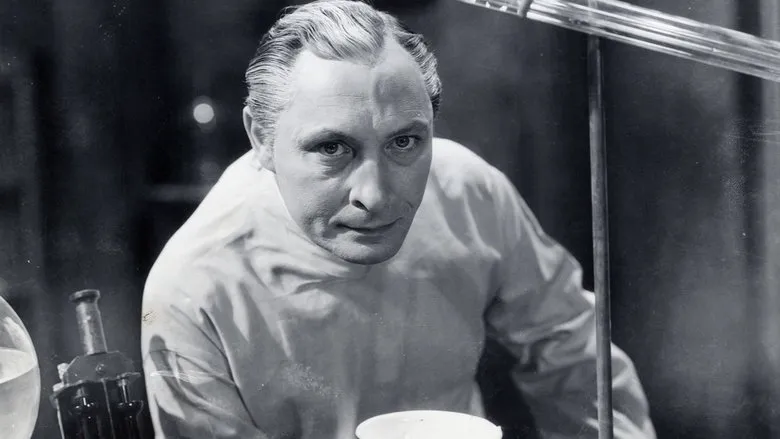Delving into Darkness: An Unsettling Exploration of Humanity in Park Chan-wook’s “Thirst”
Among the plethora of compelling South Korean films that have captivated international audiences, Park Chan-wook’s “Thirst” distinguishes itself as a profoundly unique cinematic experience. Directed by a filmmaker renowned for his bold vision and meticulous craft, this movie transcends genre conventions, offering a chillingly insightful exploration of human nature’s complexities and contradictions. It stands out not only for its audacious cinematography and disquieting narrative but, more importantly, for its profound ethical perspective, challenging viewers to confront the darkest corners of the human psyche when confronted with insatiable desires. Today, we embark on a deep dive into this unsettling masterpiece, seeking to unravel its underlying philosophical questions about morality, temptation, and the human condition.
A Priest’s Precipitous Descent
The narrative centers on Sang-hyun, masterfully portrayed by the versatile Song Kang-ho. Initially, we are introduced to him as a figure of unwavering devotion and selflessness – a devout Catholic priest dedicated to ministering to the sick and dedicating his life to the pursuit of redemption and spiritual salvation. His compassionate nature leads him to volunteer for a highly experimental vaccine trial in Africa, an endeavor he undertakes with the purest of intentions.
However, this seemingly benevolent scientific experiment takes an unforeseen, catastrophic turn, thrusting Sang-hyun into an unprecedented and horrifying situation. While most participants succumb to the virulent pathogen, Sang-hyun miraculously survives, but not without a terrifying cost. He awakens transformed, burdened by a chilling new existence: he has become a vampire. This sudden metamorphosis is an earth-shattering blow to the priest’s very essence. His body begins to undergo grotesque changes, and the insidious craving for blood slowly but relentlessly erodes his rationality and moral compass. The film vividly depicts his harrowing descent: from initially, furtively licking spilled blood from hospital patients, to desperately pilfering blood bags, and eventually, in a moment of shocking depravity, draining the blood of a blind, elderly priest he once revered as a father figure. Under the relentless compulsion of his newfound hunger, Sang-hyun spirals deeper and deeper into moral depravity.

Lust, Love, and Lingering Decay
In the throes of his agonizing transformation, Sang-hyun unexpectedly reconnects with a childhood acquaintance, Tae-ju (played with stunning intensity by Kim Ok-bin). Tae-ju is a young woman trapped in a bleak existence, an adopted girl who endures constant humiliation and emotional abuse within the oppressive household of her husband, Kang-woo. Sang-hyun’s sudden and mysterious appearance, coupled with his burgeoning extraordinary abilities, ignites a perverse hope within her, offering a tantalizing prospect of escape from her miserable, confined life.
As their interactions become more frequent and dangerously intimate, a forbidden spark of desire undeniable ignites between them. This yearning quickly escalates, leading them to cast aside their moral constraints, their relationship blossoming into an illicit affair that is consummated both physically and emotionally. The film unflinchingly portrays their descent into a passionate but ultimately destructive vortex. However, the fulfillment of their deepest, darkest desires does not bring them solace or genuine happiness. Instead, after receiving Sang-hyun’s love and the strange sense of liberation it provides, Tae-ju’s carefully suppressed inner darkness is unleashed with terrifying ferocity. She embarks on a chilling path of vengeance and unbridled chaos, embracing her newfound power with a sinister delight. Sang-hyun, now hopelessly entangled in this maelstrom of lust, guilt, and murder, sinks deeper into despair, losing himself in an endless cycle of suffering and moral compromise.
The Battle Within: Humanity Versus Insatiable Desire
“Thirst” profoundly dissects the eternal struggle between human compassion and the overwhelming force of desire through the chilling story of Sang-hyun and Tae-ju. The film serves as a potent parable, demonstrating how, when confronted with overwhelming temptation and primal urges, individuals often lose their reason, abandon their ethical boundaries, and ultimately embark on a self-destructive path. The vivid, often shocking, cinematic scenes and the actors’ mesmerizing performances allow viewers to experience their agonizing inner struggles and profound pain with an unsettling intimacy, as if they bear witness to every tortured decision.
Song Kang-ho delivers a truly masterful performance, encapsulating the complex and often contradictory nature within Sang-hyun’s heart. From his initial, almost saintly compassion as a priest to his later desperate struggle against burgeoning vampiric desires and the gravitational pull of forbidden love, his nuanced portrayal reveals the gradual distortion and tragic degradation of his humanity. Counterbalancing him, Kim Ok-bin perfectly captures Tae-ju’s pathological madness and the dangerous allure of her liberation. Her transformation from oppressed victim to calculating perpetrator evokes a complicated mixture of pity for her past plight and terror at her unleashed depravity.
A Narrative Woven with Temptation and Dire Choices
Beyond the compelling individual performances, “Thirst” boasts a cleverly constructed and meticulously unfolding plot that keeps the viewer enthralled and often unsettled. By meticulously depicting a man of God transforming into a creature of sin and bloodlust, the film brilliantly exposes the inherent weaknesses of human nature and the inherent dangers of unchecked, narcissistic desire. It highlights the brutal reality that when morality and primal desires clash head-on, humans frequently find themselves trapped in an inescapable predicament, caught between their fading conscience and their burgeoning instincts. The film relentlessly explores the crucial philosophical question of how, or even if, one can uphold personal principles and maintain moral boundaries in a world teeming with temptation and dark opportunities.

Furthermore, Park Chan-wook’s signature style shines through, as “Thirst” crafts a profoundly tense and oppressively atmospheric viewing experience through its meticulous cinematography and evocative sound design. The deliberate combination of dark, stylized scenes – often bathed in striking reds and blues – with the inherent gothic elements of vampirism, masterfully evokes a pervasive sense of fear, unease, and psychological dread in the audience. This carefully cultivated atmosphere significantly enhances the film’s immersive appeal, drawing viewers deeply into its shadowy, morally ambiguous world.
A Thought-Provoking and Unforgettable Masterpiece
In conclusion, “Thirst” stands as an extraordinarily profound and meaningful film that dares to delve into the very complexities of human nature with an unflinching gaze. Through the audacious and almost absurd premise of a devout priest becoming a vampire, it skillfully lays bare the inherent weaknesses and susceptibilities of humanity, alongside the terrifying perils of desire allowed to fester without moral containment. The film’s exceptional performances, combined with its intricately crafted plot, create a powerful and deeply thought-provoking experience that lingers long after the credits have rolled.
“Thirst” is far more than just a macabre tale depicting the struggle between carnal lust and spiritual morality; it is a profound and uncomfortable exploration of what it means to be human in the face of consuming urges. It urgently prompts us, the viewers, to critically re-examine our own desires and life pursuits, compelling us to consider how we might uphold our enduring principles and established ethical boundaries in a world constantly overflowing with temptation and compromise. This unsettling and brilliant film undoubtedly takes its audience on a unique journey of introspection and reflection, leaving an indelible mark on their minds and souls.
The Enduring Question of the Human Condition
In the captivating and often horrifying narrative of “Thirst,” we are made to bear witness to the raw complexity and multifaceted nature of humanity. The tragic trajectory of Sang-hyun and Tae-ju serves as a potent reminder that the battle between unrestrained desire and foundational morality is an eternal theme, one that has captivated philosophers and artists for centuries. When confronted with the seductive allure of temptation, when our deepest, darkest urges are ignited, can we truly uphold our principles and maintain the fragile boundaries that define our humanity? This is a fundamental question that merits deep consideration from each and every one of us. Through this haunting film, we are given a unique lens through which to explore these internal conflicts, perhaps finding some uncomfortable answers or gaining a clearer, albeit disturbing, understanding of our own desires and the ultimate pursuits that drive us.